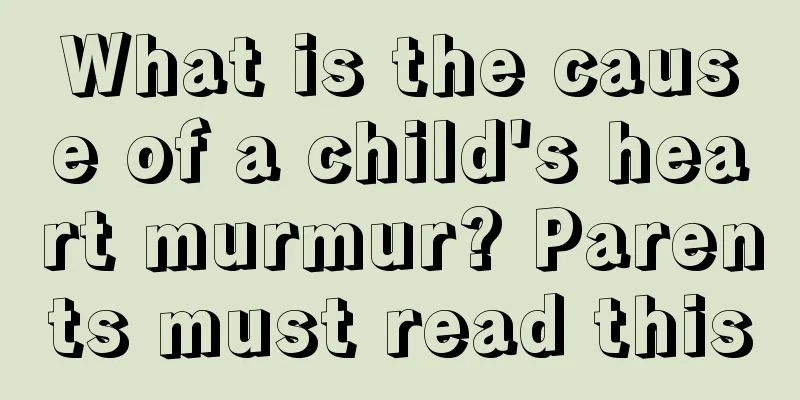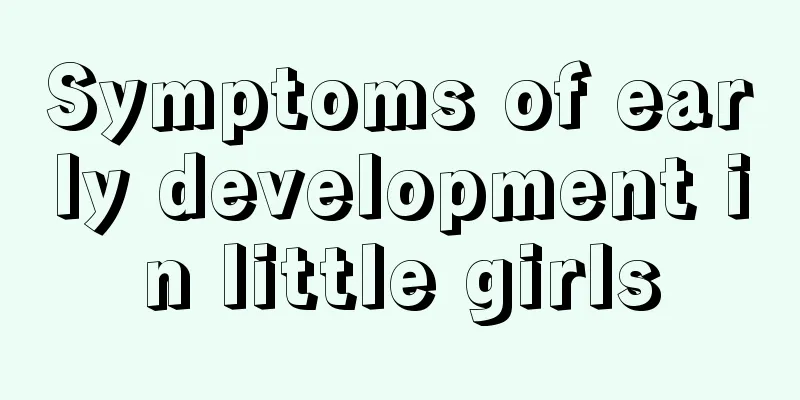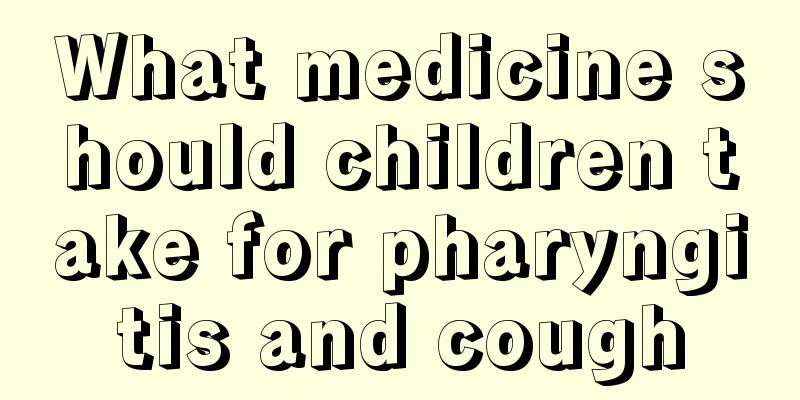What is the cause of a child's heart murmur? Parents must read this

|
Many children will have their heart checked when they go to school or get vaccinated. Some children are said to have heart murmurs. Parents feel very worried when they hear about this. Then they should know what is going on with the child's heart murmur and see if they need to go to the hospital for treatment. 1. Heart murmur is an abnormal heart sound signal that occurs during the cardiac cycle. There are two types of murmurs. One type of murmur is called "physiological murmur". The murmur is soft, usually not exceeding grade II, and is not conducted. It is often heard at the apex of the left chest or the second intercostal space on the left edge of the sternum. It is usually more obvious when children have a fever, cry, or exercise vigorously. This heart murmur is not a sign of heart disease and will not affect growth and development. As age increases, heart function gradually matures and will disappear naturally. The other is "pathological murmur", which is characterized by being loud, grade II or above, not located in the apex of the heart, conducted, and with enhanced heart sounds. This murmur is a sign of heart disease and can affect a child's growth and development. In short, some children can have heart murmurs but do not have heart disease. However, for children who have murmurs and cannot be clearly judged to be physiological, it is recommended to continue with cardiac ultrasound and other examinations to determine whether there is a pathological disease. 2. The main causes of pathological murmurs are accelerated blood flow, stenosis or incomplete closure of the valve orifice, vortex generation, abnormal blood flow channels or floating objects in the heart. Large-scale clinical studies have shown that the most common cause of pathological murmurs in children is congenital heart disease, including atrial and ventricular septal defects, patent ductus arteriosus, tetralogy of Fallot, pulmonary valve stenosis, etc. Some children have murmurs due to mild valvular regurgitation, especially a small amount of tricuspid valve regurgitation. This type of small amount of regurgitation can be classified as physiological and generally has no effect on cardiac function, but requires regular echocardiographic follow-up observation. 3. An important point is that if parents suspect their children have heart problems, they should not be overly nervous, otherwise it will cause some unnecessary mental and psychological burden on the children. They should go to the hospital for examination. Some congenital heart diseases, such as very small atrial and ventricular septal defects and small patent ductus arteriosus, can heal naturally. They only need to have regular check-ups, pay attention to strengthening nutrition, and avoid colds. |
<<: Baby's motor development is delayed, these situations need attention
>>: Can children with roseola be exposed to the wind?
Recommend
Why do children keep winking?
Children's resistance is relatively low, and ...
Diet therapy for children with tracheitis
Treating children's health is something that ...
What to do if your child is slow to respond
Look at your children and see if there is a small...
Why do children's knees make cracking sounds? Causes of cracking knees
Children's knee joints may make parents worry...
Is it normal for a 4 year old to lose hair?
We know that adults lose a certain amount of hair...
What to do if your child cries while sleeping
If a child cries while sleeping, you need to pay ...
Why do children often have stomachaches?
Stomachache is a common disease in people's l...
How to cure baby mouth ulcers quickly?
The health of a baby is a very important matter f...
What is the standard weight for eight-month-old babies?
What is the standard weight for an eight-month-ol...
What happens if there are black lines in my baby’s poop?
After having a baby in the family, the whole fami...
Normal value and regulation method of neonatal blood pressure
We all know that our body's normal activities...
How low can jaundice be reduced before discharge?
Neonatal jaundice is divided into two phenomena: ...
What causes children to have frequent stomachaches?
If children often have stomach pain, they may hav...
Why is my two-month-old baby breathing heavily?
Two-month-old babies have heavy breathing. In fac...
Which medicine is effective for children with anemia?
The child's face is pale and bloodless, which...









